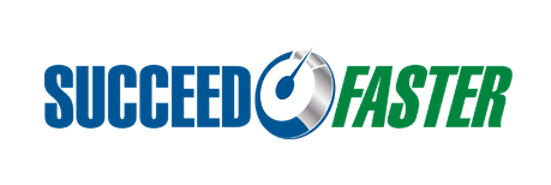Navigating the Career Fair
- Sep, 09, 2013
- Timaugustine
- Job Search
- No Comments.
If you are preparing for a career fair at your university, make sure you develop a game plan to cover all the ground efficiently. Identify the list of attendees/companies whom you want to meet, including potential times and locations. The most important aspect of succeeding at a career fair is your preparation. In some cases, it may be appropriate to email or phone your target contact in advance of the event. Mention that you’ll be attending and looking forward to introducing yourself.
Here are the keys to career fair success.
Step 1: Identity your top 5 companies and learn as much as possible.
It is important to have a game plan. Make sure you identify your target list of companies that you are most interest in. Contact the organization sponsoring the event and ask for an attendee list. Review the list and identify the top 5 firms you would like to meet. You should spend as much time learning about the firms as possible. Contact your career center and ask them for any and all information they have about the firms. Leverage your network such as your professors, mentors and peers asking them for any information that would help you in your research.
Step 2: Develop your strategy for each firm.
Based on your research, you should develop a strategy for each firm. This might include customizing your resume to fit each company. For instance, if Google is one of your target firms, research everything you can about Google. If you find that teamwork and collaboration are the most important attributes they look for in new hires, you might want to customize your resume to highlight your teamwork and group collaboration. It is not uncommon to have 5 different resumes, one for each firm. Your resumes will still have common titles, past experiences and details about your skills, but each might have a subtle twist that highlight the specific skills that match your firm’s requirements.
Step 3: Set a goal to meet each of your target firms.
This is the most critical part of the career fair. While other students are walking around the career fair hoping to meet a firm that is interested in them, you should have a game plan to specifically target your five firms. Get a map of the career fair floor and prioritize who you will meet. When you enter the career fair, bee line to your first target firm and don’t stop until you met all 5.
Step 4: Prepare Your Thirty-Second Commercial
Successful networkers are always prepared to deliver their professional pitch or thirty-second commercial. Whether you use this pitch at a job fair, when you meet a VIP, or to answer the “Tell me about yourself” interview question, it is a helpful tool to have ready at all times.
Here’s a sample script for a job seeker with experience: “As a sales rep for Tech Systems, I focused on industry knowledge, developing relationships, and growing revenue. My industry knowledge helped develop a list of forty qualified prospects. My relationship skills opened the doors to meet decision-makers and executive-level contacts and to identify potential solutions to their problems. In fact, the result is an average annual revenue increase of forty-eight percent over the past twelve months, at a time when the industry is experiencing a significant recession.”
College students with less experience could answer like this: “As the communications coordinator for the solar car team at Michigan, I wrote press releases, conducted interviews and wrote a blog. This experience has prepared me to work in the tech industry as a communications specialist.”
Step 5: Develop a list of intelligent questions:
Beyond the 30-second commercial, you will want to have a list of specific questions for your target firm. When you meet someone from your target firm, introduce yourself and lead with your 30-second commercial. In addition you will want to start a conversation based on your research such as “Based on my research, I know the GE is expanding their internship program focused on social media. Can you tell me more about that initiative? What type of projects are you currently working on? Is there any need for help with this specific project? Are you are looking to hire people with any specific skills? I noticed from my research that your company was merging with XYZ; how will that affect the projects you are tasked with?
If you find that you are not a fit for that company’s needs, you may want to provide a referral of someone from your personal network. You want to be in a place to position yourself as the answer to the needs of your targeted companies. If you believe you are a fit, you will want to provide your experience and show why and how you fit into the firm. For instance, “In my most recent position, we had to solve the same problem. In fact, my role was to . . .” Continue to build your network. Make sure you capitalize on the opportunity to ask for a business card and/or permission to make contact again soon.
Be very conscious of nonverbal behavior. If they are looking at their watch or looking around the room, use that time to say, “I do not want to take too much of your time. Could I get your business card and maybe we can finish our discussion after the conference?”
Step 6: Make sure you have Business Cards
Most student’s who attend a career fair, bring their resume. But beyond the resume, I suggest bringing a business card that you can leave with the person you meet at the booth. This will be the extra touch that most of your competitors will not have and is an easy way to keep your name in front of the decision maker after the fair.
There is a standard etiquette to receiving a business card. When someone hands you his or her card, make sure you read the person’s name aloud. People always like hearing their own name, and it shows that you have interest and appreciate their card.
Then, once you leave, turn the card over and write specific characteristics about the meeting or conversation on the back of the card. You should document appearance, such as “blond hair, tall, black coat” to help refresh your memory. You should also document some facts about the conversation. For instance, “Talked about the Cleveland Indians” or “Found out that they will be converting their systems and need a project manager.” The point of this exercise is to provide a refresher so that you will remember the person three months from now.
Final thoughts about networking at events.
Smile, be personable, look people in the eye, and show your interest by asking questions and (most importantly) listening to their responses. Networking is a reciprocal relationship. The more you care about others, the more you will succeed.
Track your progress. Make sure you measure your networking success by the number of meaningful conversations you’ve had. Make sure you focus on the conversation and the people you are meeting, not just the fact that you are looking for a job. Make sure you understand your contact’s needs so you can understand how you can be of value.
Lastly, a career fair is only the first step in the introduction. Follow-up soon after the fair to have additional conversations and learn more about the firm and do your best show the person who you should be the one they call back for an interview.






